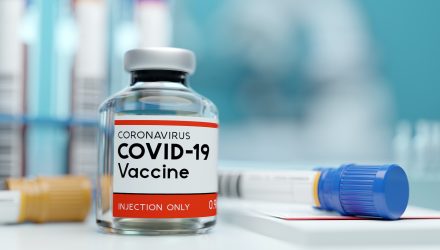With the race to find a vaccine for the coronavirus, now drugmaker AstraZeneca is the latest to receive funding to generate a panacea.
AstraZeneca was awarded over $1 billion from the U.S. Health Department’s Biomedical Advanced Research and Development Authority to formulate a coronavirus vaccine from the University of Oxford.
The British-Swedish drugmaker has committed to initially provide a minimum of 400 million doses of the vaccine and established total manufacturing capacity to generate 1 billion doses, with first deliveries set to arrive this September.
Pascal Soriot, CEO of AstraZeneca, said the drugmaker would do everything possible to make the vaccine “quickly and widely available.”
On Sunday, the British government also announced it was injecting 65.5 million pounds ($79 million) in new funding toward the development of the Covid-19 vaccine.
U.S. stocks surged higher on Monday, moving into positive territory for May, following news that drugmaker Moderna released positive, preliminary results from its first human trial of its experimental Covid-19 vaccine, generating optimism that the medical community was taking steps to beat the coronavirus.
Shares of the biotech company soared surged over 25% this morning after it released positive results from preliminary human tests of its vaccine candidate for the coronavirus. According to the company, the vaccine generated Covid-19 antibodies in all 45 participants.
This optimism faded the next day amid news that some of the data from the trial might be insufficient, causing the stock to stumble as a result.
While the process to generate a new vaccine is likely to take some time, rather than pin their hopes on one particular company, investors can bet on a broad swath of biotech companies using ETFs.
Some of the most popular ETFs to consider, or ones with significant allocations of Moderna, include the iShares NASDAQ Biotechnology ETF (IBB), the SPDR S&P Biotech ETF (XBI) and the VanEck Vectors Biotech ETF (BBH), and Loncar Cancer Immunotherapy ETF (CNCR).
For more market trends, visit ETF Trends.
